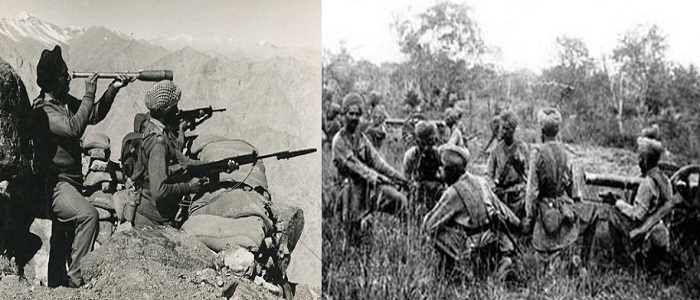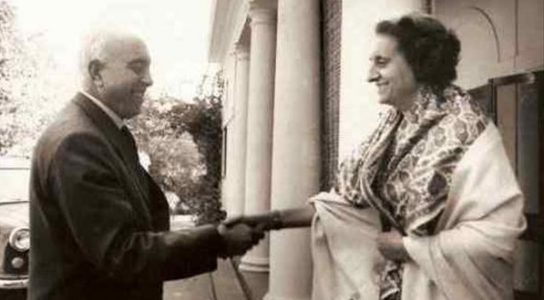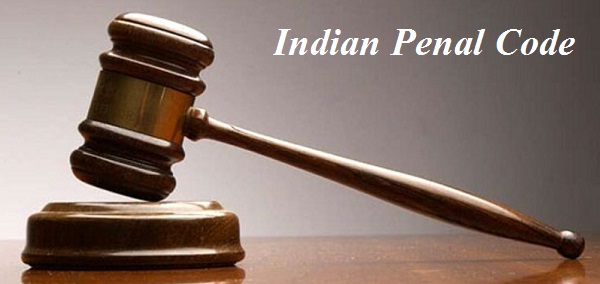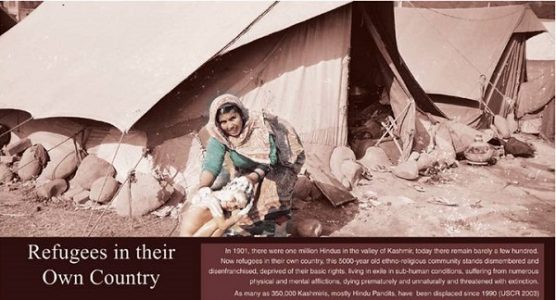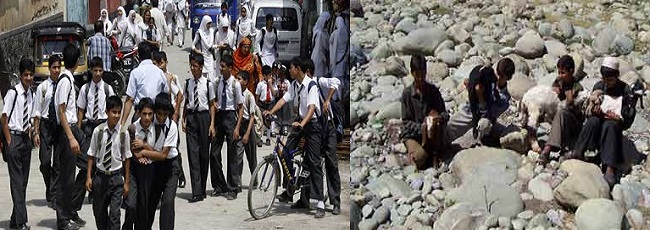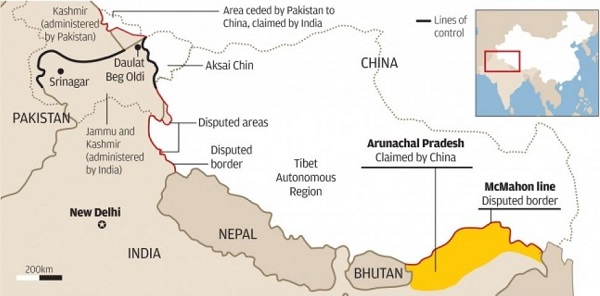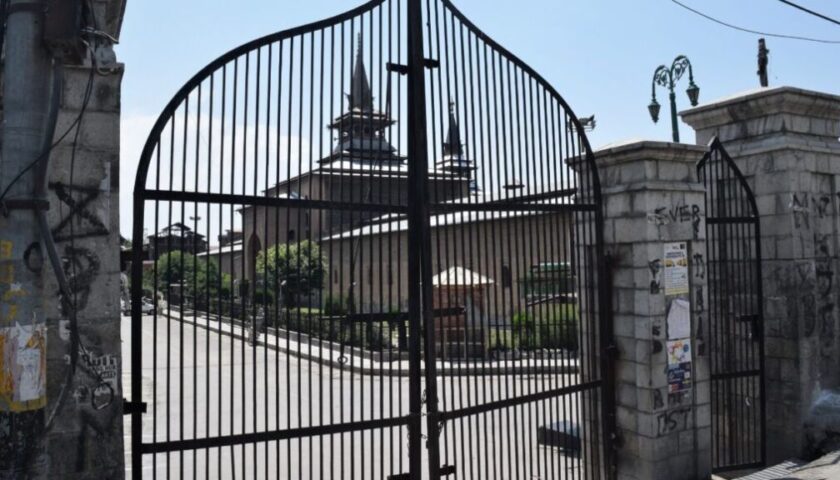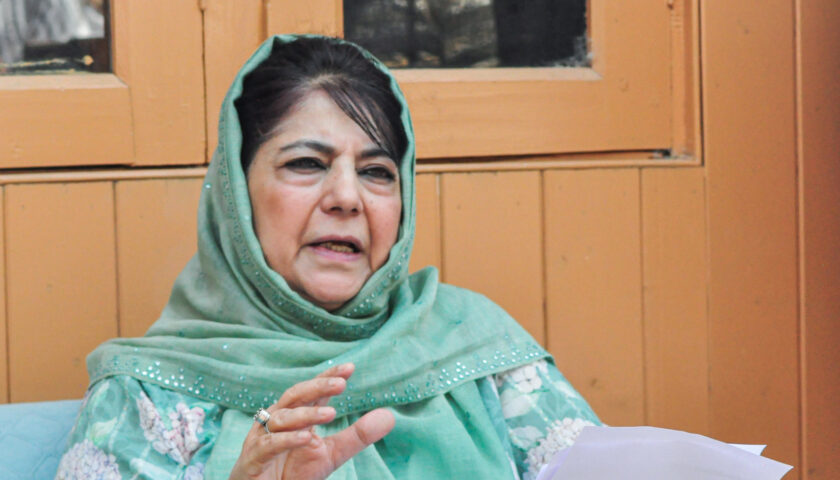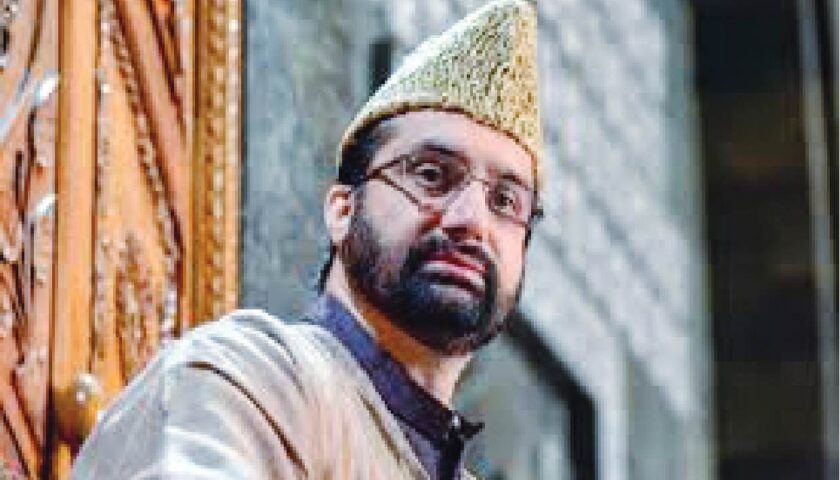Whenever there is discussion about law and order in the state of Jammu and Kashmir, a blame game starts and both side (State of Jammu & Kashmir and the Indian Government) accuses each other for deteriorating the law and order situation of the state. Article 370 is also accused for entire mess and few people came up with their own laws, even if they are non-existing. The article 370 is one of the main reason for current tug of war as it empowers the state of Jammu & Kashmir to make the laws for state and to decide which of the Indian laws should be applicable in the state. There are other part of constitution/person which are also responsible for present condition of the state. Also there are many misconception and rumors about the article 370 so we are presenting you some facts about the article 370 and a list of laws that are applicable in India but not in the state of Jammu & Kashmir.
What is article 370: The Article 370 is defined under Part XXI of the Indian Constitution which deals with Temporary, Transitional and Special Provisions. Though in this part (Part XXI) special provision are given to the states of Maharashtra, Gujrat, Nagaland, Assam, Manipur, Sikkim, Mizoram, Arunachal Pradesh and Goa, but the special power and provision of J & K is nowhere when compared. Article 370 restricts Indian parliament to make any laws for the state and it can only preside over the subjects like Defense, External Affairs, finance and communication. Laws related to union and concurrent list in J & K can be passed only after consultation with the state government.
Article 35A of Indian Constitution: The Article 35A has harmed the state as much as the article 370. It was passed by then the Prime Minister of India Mr. Jawahar Lal Nehru by the name “Order of 1954” and then added to the constitution as article 35A. This article is criticized for its insertion in constitution as it was not added to the Constitution by following the procedure prescribed for amendment of the Constitution of India and therefore, it violates the Constitutional procedures established by law. The article 35A deals with many important subjects like citizenship of state, employment, accusation of property and scholarship. It is said that to abolish article 370 first government should repeal article 35A.
Indira-Sheikh accord of 1974: Another jolt to integration of Jammu & Kashmir in India was the1974 Indira-Sheikh accord according to which: a) The State will continue to be governed by Article 370 of the Constitution of India. b) Residuary powers of legislation shall remain with the State. c) It is agreed that the State Government can review the laws made by Parliament or extended the law to the State or not.
Let’s take a look on the laws that are not applicable (altered) in the state of Jammu & Kashmir.
1) Indian Penal Code is not applicable in the state. Instead of IPC they have RPC which stands forRanbir Penal Code. The Assembly of Jammu & Kashmir is for 6 years where as for rest of India it is 5 years. Also till 1965, J&K had a Sadr-e-Riyasat for Governor and Prime Minister in place of Chief Minister.
2) Prevention of Corruption Act of 1988 is not applicable in the state. This act was passed to fight against corruption in government agencies and public sector businesses in India.
3) The Religious Institution Act of 1988 is not applicable in the state. This law prohibits religious institutions from allowing their premises for the promotion of political activity and storing of Arm and Ammunition.
4) The Delhi Special Police Establishment Act of 1946 is not applicable. The power of CBI is derived from this act and thus J&K is outside the preview of CBI.
5) The Right of Children to free and Compulsory Education act of 2009 is again not applicable in the state of J & K. This act describes/implements the importance of free and compulsory education for children between age of 6 and 14 in India.
6) Only Permanent Resident (P.R) of the state are allowed to purchase immovable property in state. Although the residents of Jammu & Kashmir are allowed to own property outside the state and the important thing is that the definition of Permanent Resident is itself biased. The State of Himachal Pradesh has similar restriction but those are none when compared to J & K. It is to be noted that a person who is not permanent Resident of J&K is denied of State Employment, right to scholarship, and cannot vote in the state legislature election. Refugees can vote in parliament but not in Assembly or Local body’s election.
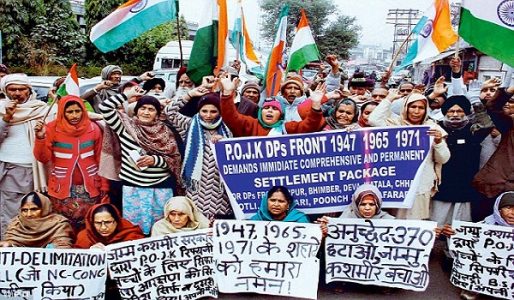
7) The Political Reservation of Scheduled Tribes is not there in J& K though there is 11.9% ST in the state.
8) The State has refused to accept the 42nd Constitutional Amendment Act by which the word “Secular” was added to the Preamble of India Constitution.
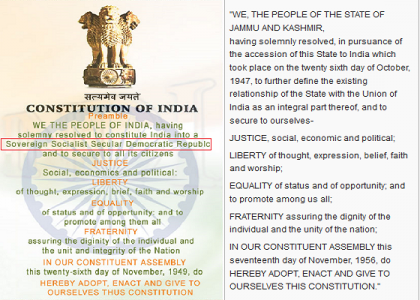
9) The Central driven laws like the Wealth Tax, Gift Tax, and intermarriage with other Indian Nationals cease to exist in J & K. The Service Tax is not applicable in J & K it has its own Service Tax.
10) Discrimination against Women of State: Women in the state faces the most discrimination because if a woman holds a P.R (Permanent Resident) certificate and marries a man who does not have a PR (Non-Kashmiri/Indian Citizen) then she loses her P.R certificate and if she is working with state government then her services are terminated. Surprisingly women from outside of J&K who do not hold PR Certificate get one by marrying men from the state. It is to be noted here if a woman marries a man who does not hold a PR certificate then she can retain the property but same cannot be transferred to her heirs. In 2002 High Court ruling made it clear that a woman will remain a PR even after marriage to a non-PR, and enjoy all the rights of a PR. But then People’s Democratic Partygovernment, led by Mehbooba Mufti, passed a law to overturn the court judgment by introducing a Bill styled “Permanent Residents (Disqualification) Bill, 2004”. Not only Mufti’s but also Omar Abdullah’s party, the National Conference, backed this Bill and got it passed in the lower house of the assembly.
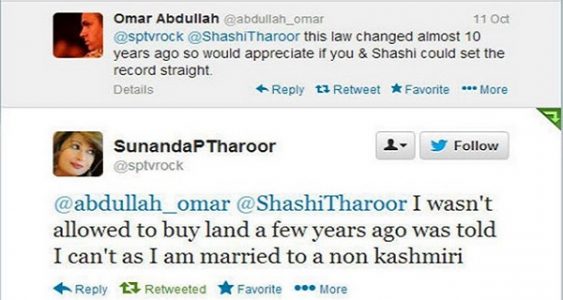
11) In the State every legislator and Judge, including the Chief Justice and Chief Minister is required toswear by the constitution of Jammu & Kashmir and not that of India.
12) It is due to article 370 that Indian Parliament cannot increase or reduce the borders of the state. Due to this India is not able to settle the case related to Aski Chin as it is a territory of J & K.
13) After the Delhi Gang Rape of 2012 parliament passed the Criminal Law which is again not applicable in J&K.
14) RTI (Right to Information) is not applicable in the state and it has its own RTI.
15) Part of Indian Constitution that are not applicable in Jammu & Kashmir
- Article 31C with respect to Directive Principles of State Policy.
- Article 36-51 relates to Uniform Civil Code.
- Article 51A which lays down the fundamental duties of every citizen of India.
- Article 332 which deals with reservation of Scheduled Caste/Tribes in the State legislature.
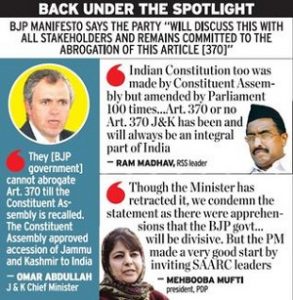
An example of verbal fight between various parties as the topic of article 370 is discussed.
If you really like our article and you think it’s worth reading then please Like/Share this article on Facebook/Twitter so that we can reach to maximum people.We can see how few provision of constitution has converted the state from paradise on the Earth to a chaotic place. Many diplomats have suggested solution for ongoing crises but the real issue is even if you even start the discussion of Kashmir and article 370 it is interpreted in other sense and then a game of majority/minority, Hindu/Muslim begins. It is to be noted the state of J & K is heavily dependent on Central Government for funds and in return the state is not able to repay back the money collected from tax. So we can summarize that the provisions of article 370, article 35A and cheap politics has created a state which is heavily dependent on the Government of India for funds and in return the Indian Government cannot make laws for that state and if made they are altered or not applied.
